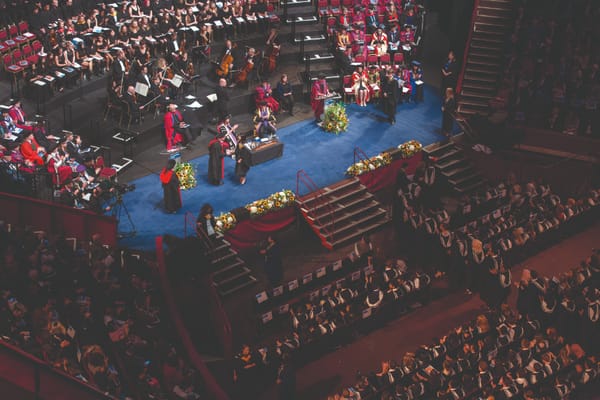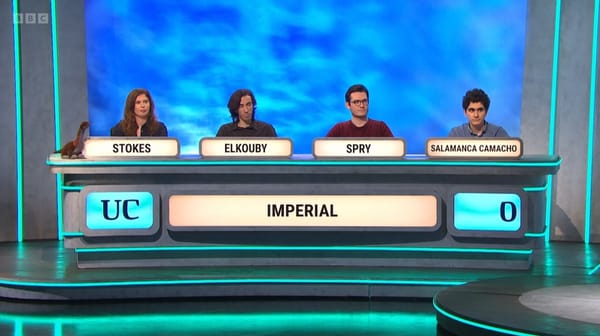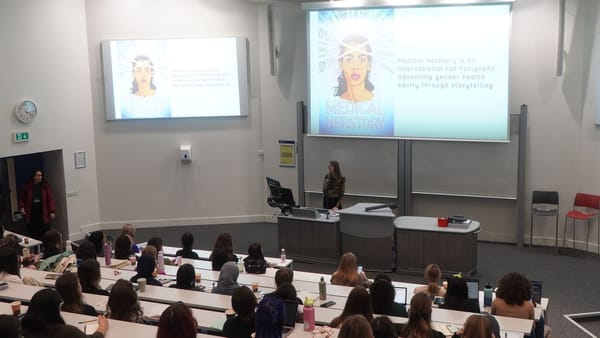Imperial should be refunding our tuition fees following the strike
A group of Imperial students argue this is not solely about loss of contact time. The entirety of our educational experience has suffered because of the strikes.

Earlier this year, while academic and support staff were exercising their right to strike in protest against unfair changes to their pensions, over 3,000 students signed a letter to senior management asking for a partial refund in tuition fees. As a result of the industrial action, many of us lost out on contact time, support from staff, and general momentum. If, as seems to be the case across the UK, universities are businesses, and we are consumers, then we have the right to demand a refund. These concerns have been presented to the senior management of the College, but the response we have received has been lacking. Last month, several of us heard from Professor Alice Gast personally, who sent a statement that has also been uploaded to the Imperial website. It reads: “fees cover all aspects of your time at Imperial, and are based on the delivery of overall outcomes, rather than being payments for specific contact hours.”
While we appreciate Professor Gast recognises this is about more than just contact hours, we hope that by overall outcomes she does not solely mean our degree certificates. Instead, they should refer to the graduate attributes listed on Imperial’s own website. Imperial are “committed” to ensuring Imperial graduates will “Demonstrate deep conceptual understanding of their chosen discipline”, “approach challenges with curiosity, critical thinking, and creativity”, and “have developed into independent learners with high self-efficacy”, among others.
To achieve these aspirational outcomes requires departments to deliver the pedagogical approach outlined in the excellent new Teaching and Learning Strategy. Launching this strategy, Professor Simone Buitendijk, Vice Provost (Education), noted the emphasis on interactive learning, with “a focus on increasing the sense of community and working with student as partners.” while Ms Giskin Day, an Imperial College Principal teaching fellow, envisaged classrooms as “interactive facilitative space(s)” where dialogue rather than didactic delivery was central to learning.
We entirely agree with this visionary and aspirational strategy, and welcome its implementation at Imperial. However, Professor Gast appears to discount the view that our education had suffered and as a result, and avoids the question of the college’s liability to refund any of our fees.
While our fees are not for specific contact hours, it is precisely because we have lost this contact time that we have lost the opportunity for dialogue and interaction, both of which are central to the College’s educational strategy. As a result our education has suffered. Indeed, this is the basis of our claims for compensation. On many courses, both undergraduate and postgraduate, we are fortunate to be partners with our lecturers in this excellent type of education; however, it cannot take place when our lecturers are on strike. The educational experience, which was the reason that we chose to come to Imperial, is what we value so highly, and not just the outcome.
Our educational experience should not be atomised into specific contact hours, but should rather be based on the totality of our learning experience. This requires our teachers and fellow students to be present in the department, at seminars, in classes, and on-line – and not on strike. The key point we were making in our correspondence with the College is that we have not just lost specific contact hours but also momentum and the excitement and creativity that comes from an excellent course. It is our educational experience in its entirety that has suffered as a direct result of the disruptions arising from the strike.
Despite assurances from senior management about mitigations for the strike, these have necessarily been minimal and in no way compensate for our loss. The fact remains that our lecturers were on strike for 14 days in the Spring Term – more than a quarter of the total term. Recovering lost teaching – funded by the college – may help to some extent but needs to fit into students’ existing commitments. Full time students are very stretched already, with multiple commitments, and few have capacity to retrace steps from the previous term. Even if it were feasible to reschedule lost teaching, the practicalities of doing so from the student’s point of view are therefore very limited. And without full student participation and interaction as partners in learning, the educational experience is considerably diminished. Therefore it can never simply a matter of replacing missing teaching sessions at a later date, particularly for the practical courses that were cancelled and which may be essential for some students in their future careers.
The sad fact is that strikes mean lost production. This is the reason that the College are withholding pay from our excellent lecturers who went on strike. It seems disingenuous to us that they can therefore also assert that we have not suffered a loss in our education and are not due a refund. For 14 days we were unable to meet with our lecturers who were union members; we missed scheduled teaching sessions; we lost opportunities to learn. This is what the totality of education means to us and not just the final degree outcome.
We would like the College to meet with us and our union representatives to agree a way forward that respects students’ loss of education experience through fair compensation. We feel privileged to be students at Imperial and are fortunate to be receiving an excellent educational experience. This, however, did not happen whilst our lecturers were on strike. We need to agree a fair and just formula to compensate, not only ourselves, but the 3,000 fellow students who have signed the letter stating they believed their education would suffer.
Felix will be publishing a version of this article online as an open letter. If you would like to put your name to it, please fill in the form.








